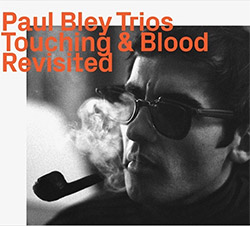
Reissuing two essential and innovative piano trio albums: Paul Bley Trio's 1965 album Touching with Bley on piano, Kent Carter on double bass and Barry Altschul on drums, plus the title track from the 1967 Bley album In Haarlem - Blood with Altschul and Mark Levinson taking the double bass roll, performing compositions by Paul Bley, Carla Bley and Annette Peacock.
In Stock
Quantity in Basket: None
Log In to use our Wish List
Shipping Weight: 3.00 units
EU & UK Customers:
Discogs.com can handle your VAT payments
So please order through Discogs
Sample The Album:
Paul Bley-piano
Kent Carter-double bass
Barry Altschul-drums
Mark Levinson-double bass
Click an artist name above to see in-stock items for that artist.
UPC: 752156110828
Label: ezz-thetics by Hat Hut Records Ltd
Catalog ID: ezz-thetics 1108
Squidco Product Code: 30238
Format: CD
Condition: New
Released: 2021
Country: Switzerland
Packaging: Cardboard Gatefold
Tracks 1-7 recorded November 8th, 1965 in Copenhagen. Track 8 recorded November 4th, 1966 in Haarlem, the Netherlands. Touching originally released as a vinyl LP on the Debut Records label in 1965 as catalog code DEB 147. In Haarlem - Blood was originally released in 1967 as a vinyl LP on the German labelInternational Polydor Production.
"Jess Stacy is best known for his epic solo on "Sing, Sing, Sing" at Benny Goodman's famous 1938 Carnegie Hall concert, but Stacy is also significant in being the first pianist to work in what has become a ubiquitous formation in modern jazz, and in the last decade more than ever. For fans of the art, the jazz piano trio reached its pinnacle of perfection with Bill Evans's Village Vanguard performances of late June 1961, with the trio of Scott La Faro and Paul Motian. In 1982, Stacy was lured out of retirement - he'd walked out on music after a woman spilled beer in his lap - for one last performance. Evans had died shortly before, and it seemed that the piano trio literature had left its golden age.
And yet there was a whole second line of development within the same format that until relatively recently has been overlooked and undervalued. Paul Bley is the Trotsky of modern jazz, its prophet of permanent revolution. He was a leading, though because white and Canadian often unacknowledged, figure in the creation of the Jazz Composers Guild in 1964, which became the laboratory for new experiment in jazz, unfettered by entertainment models, Broadway tunes and corporate structures.
Bley made his first recorded trio performances with Charles Mingus and Art Blakey on the bassist's debut label, and already sound different: angular, unpredictable, with a fierce brand of lyricism. His first celebrated trio was with clarinettist Jimmy Giuffre and bassist Steve Swallow. They made several ground-breaking albums of a species of chamber jazz previously unheard: Fusion, Thesis, Free Fall and the live recordings from Stuttgart, Bremen (on hatART/hatOLGY) and recently from Graz, Austria released on ezz-thetics 1001. Almost more significant, in terms of Bley's individual development, was his participation in Sonny Rollins's 1963 RCA recording Sonny Meets Hawk. Pat Metheny has described Bley's solo on "All The Things You Are" as "the shot heard around the world".
Over the remainder of that decade Bley emerged as an improviser of astonishing depth and complexity. He worked in a hard, percussive vein very different from the independently floating lines that Bill Evans favoured. He retained more of the abstractions of bop but also incorporated elements of minimalism, nonfunctional harmony and pure sound-colour, often with an African-sounding quality. Listen to "Blood" and "Mister Joy" on the Haarlem recordings here and there are striking similarities with the work of Abdullah Ibrahim.
The earlier of the recordings "revisited" by ezz-thetics is Touching, again made for Mingus's Debut, but recorded in the autumn of 1965 in Copenhagen. It remains a modern classic. Not the least individual aspect of it and of Bley's music at this time is that almost all the compositions on the record were by women who had been both creative and life-partners. Bley met Karen Borg when she was selling cigarettes at Birdland. She changed her name to Carla, and then to Bley when they married, and though they divorced shortly after, she retained her married name professionally. The other sharer was Annette Peacock. Bley had encouraged Carla to take up composition and she quickly evolved an innovative, unique style that blended avant-garde practices with theatre and a measure of the Third Stream sensibility that was current at the time. Peacock had, or was instilled with, a similar sensibility.
A few years before his death Paul Bley told me that three distinct persons became one in the music on Touching. "There's this damned obsession with 'the composer' over here and 'the player' over there. There's also an obsession with originality and ownership, like, this music isn't authentic if I didn't write what I play myself. It isn't like that. The music doesn't exist until it's played. I've no time for head music". Nothing could be further from that than the music on Touching. The title, taken from Annette Peacock's most beautiful song, is absolutely apposite. This is music about contact as well as emotion: "touching" has those two meanings in English. It is about a coming-together of abstraction and physical presence, the mathematics of the melody becoming reified - not rarified - in air. It's unwise to play too much with titles, but "Both" and "Closer" (the latter a rare Paul Bley original of the time) are equally significant signals.
Bley had assembled a highly inventive trio to accompany him. Bassist Kent Carter often sounds as if he is playing cello and drummer Barry Altschul, far from being a mere time-keeper is the most challengingly musical percussionist of his time, with a style very different from the current Elvin Jones, Sunny Murray, Andrew Cyrille approach. If Touching is the embodiment of two different creative partnerships, it is also a perfect illustration of the unique dynamics of the trio, which unlike any larger or smaller format militates against conversational indulgence or solitary musing. Listening simultaneously to two different voices and to the musical imaginings of two different composers exerted a revelatory pull on Bley and he delivered an album of lasting power, that deserves to be considered - though rarely is - one of the most important of its era.
Live - and I can personally attest to this - the group was stunning. I heard them when still a schoolboy and the memory will never fade. The group that recorded in Haarlem, Netherlands (not Harlem, as some discographies insist) was slightly different from the Touching group in that Mark Levinson had replaced Carter in the bass role. One point in common between Bley and Evans was their shared wish to keep a regular group together, ideally in Evans's case for three years, though tragically his greatest group was foreshortened by the early death of Scott LaFaro in an auto accident. Bley worked hard to integrate Levinson's punchier and less obviously singing sound. They'd recorded Ramblin' and Blood in European studios some months prior to the Haarlem date and the group that came together that November day was in fierily exuberant form. There is no performance in modern jazz that lifts my spirits more than "Mister Joy". It and "Blood", both Annette Peacock compositions, were to remain in his repertoire for some time and appear on other albums and live recordings of the period, with different groups. But they were never bettered here, and for my money, the art of the jazz piano trio reached its peak in Europe in the middle 1960s. That's not denigrate Bill Evans or belittle the transcendent of the Village Vanguard sessions, just to state an evolutionary fact. Listening to Paul Bley, open-mindedly, will change your heart and your hearing."-Brian Morton, January 2020

The Squid's Ear!
Artist Biographies
• Show Bio for Paul Bley "Hyman Paul Bley, CM (November 10, 1932 - January 3, 2016) was a Canadian pianist known for his contributions to the free jazz movement of the 1960s as well as his innovations and influence on trio playing and his early live performance on the Moog and Arp audio synthesizers. Bley was a long-time resident of the United States. His music has been described by Ben Ratliff of the New York Times as "deeply original and aesthetically aggressive." Bley's prolific output includes influential recordings from the 1950s through to his solo piano records of the 2000s. Bley was born in Montreal, Quebec, on November 10, 1932. His adoptive parents were Betty Marcovitch, an immigrant from Romania, and Joe Bley, owner of an embroidery factory. However, in 1993 a relative from the New York branch of the Bley family walked into Sweet Basil in NYC and informed him that his father was actually his biological parent. At age five Bley studied violin, but at age seven he decided to switch to the piano. By eleven he received a junior diploma from the McGill Conservatory in Montreal. At thirteen he formed a band which played at summer resorts in Ste. Agathe, Quebec. As a teenager he played with touring American bands, including Al Cowan's Tramp Band. In 1949, when Bley was starting his senior year of high school, Oscar Peterson asked Bley to fulfill his contract at the Alberta Lounge in Montreal. The next year Bley left Montreal for New York City and Julliard. In the 1951, on a return trip to Montreal, Bley organized the Jazz Workshop with a group of Montreal musicians. In 1953 Bley invited the bebop alto saxophonist and composer Charlie Parker to the Jazz Workshop, where he played and recorded with him. When Bley returned to New York City he hired Jackie McLean, Al Levitt and Doug Watkins to play an extended gig at the Copa City on Long Island. In 1953 the Shaw Agency booked Bley and his trio to tour with Lester Young, billed as "Lester Young and the Paul Bley Trio" in ads. He also performed with tenor saxophonist Ben Webster at that time. He then conducted for bassist Charles Mingus on the Charles Mingus and His Orchestra album. Additionally, in 1953, Mingus produced the Introducing Paul Bley album for his label, Debut Records with Mingus on bass and drummer Art Blakey . (In 1960 Bley recorded again with the Charles Mingus Group.) In 1954 Bley received a call from Chet Baker inviting him to play opposite Baker's quintet at Jazz City in Hollywood, California for the month of March. This was followed by a tour with singer Dakota Staton. Down Beat Magazine interviewed Bley for its July 13, 1955 issue. The prescient title of the article read, "PAUL BLEY, Jazz Is Just About Ready For Another Revolution." The article, reprinted in Down Beat's 50th Anniversary edition, quoted Bley as saying, "I'd like to write longer forms, I'd like to write music without a chordal center." Bley's trio with Hal Gaylor and Lennie McBrowne toured across the US in 1956, including a club in Juarez. Mexico. The tour culminated with an invitation to play a 1956 New Year's Eve gig at Lucile Ball and Desi Arnez's home in Palm Springs. During the evening, Bley collapsed on the bandstand with a bleeding ulcer and Lucy immediately took him to the Palm Springs hospital where she proceeded to pay for all of his medical care. Bley, who had met Karen Borg while she was working as a cigarette girl at Birdland in NYC, married her after she came out to meet him in Los Angeles, where she became Carla Bley. In 1957 Bley stayed in Los Angeles where he had the house band at the Hillcrest Club. By 1958 the original band, with vibe player, Dave Pike, evolved into a quintet with Bley hiring young avant garde musicians trumpet player Don Cherry, alto saxophonist Ornette Coleman, bassist Charlie Haden and drummer Billy Higgins. In the early 1960s Bley was part of "The Jimmy Giuffre 3," with Giuffre on reeds, and Steve Swallow on bass. Its repertoire included compositions by Giuffre, Bley and his now ex-wife, composer Carla Bley. The group's music moved towards chamber jazz and free jazz. The 1961 European tour of The Giuffre 3 shocked a public expecting Bebop, however the many recordings released from this tour have proven to be classics of free jazz. During the same period, Bley was touring and recording with tenor saxophonist Sonny Rollins, which culminated with the RCA Victor album Sonny Meets Hawk! with tenor saxophonist Coleman Hawkins. Bley's solo on "All The Things You Are" from this album has been called "the shot heard around the world" by Pat Metheny. In 1964 Bley was instrumental in the formation of the Jazz Composers Guild, a co-operative organization which brought together many free jazz musicians in New York: Roswell Rudd, Cecil Taylor, Archie Shepp, Carla Bley, Michael Mantler, Sun Ra, and others. The guild organized weekly concerts and created a forum for the "October Revolution" of 1964. In the late 1960s, Bley pioneered the use of the Arp and Moog synthesizers, performing live before an audience for the first time at Philharmonic Hall in New York City on December 26, 1969. This "Bley-Peacock Synthesizer Show" performance, a group with singer/composer Annette Peacock, who had written much of his personal repertoire since 1964, was followed by her playing on the recordings Dual Unity (credited to "Annette & Paul Bley") and Improvisie. The latter was a French release of two extended improvisational tracks with Bley on synthesizers, Peacock's voice and keyboards, and percussion by Dutch free jazz drummer Han Bennink, who had also appeared on part of Dual Unity. [biography continues...]" ^ Hide Bio for Paul Bley • Show Bio for Kent Carter "Kent Carter (born June 14, 1939 in Hanover, New Hampshire, USA. Carter studied several instruments before settling on bass. In the late 50s-early 60s, he studied at Berklee College Of Music, played with Lowell Davidson, and in New York with Jazz Composers Orchestra. From the mid-60s he was in Europe with artists including as Barry Altschul, Derek Bailey, Han Bennink, Carla Bley, Paul Bley, Bobby Bradford, Don Cherry, Steve Lacy, Michael Mantler, Enrico Rava, Max Roach, Roswell Rudd and Mal Waldron. During the 70s he continued his association with Lacy, was with John Stevens' Spontaneous Music Ensemble, TOK, a trio with Takashi Kako and Oliver Johnson, and formed his own trio with Carlos Zingaro and François Dreno. By the 80s, Carter had relocated to France, teaching at the Beaux Art School, Angouleme, and with his wife forming MAD, a music, arts and dance studio. He worked in Detail, with Frode Gjerstad and Stevens, Project, with Karl Berger, Claude Bernard, Klaus Kugel, Charlie Mariano and Albrecht Maurer, and Voyage, with Beñat Achiary and David Holmes. Carter has also played with Billy Bang, Petras Vysniauskas, Theo Jorgensmann, Andreas Willers and Eckard Koltermann. Carter composes for theatre and film, and performs internationally." ^ Hide Bio for Kent Carter • Show Bio for Barry Altschul "Barry Altschul (born January 6, 1943, New York City)[1] is a free jazz and hard bop drummer who gained fame in the late 1960s with the pianists Paul Bley and Chick Corea. Altschul, having initially taught himself to play drums, studied with Charlie Persip during the 1960s. In the latter part of the decade, he performed with Paul Bley. In 1969 he joined with Chick Corea, Dave Holland and Anthony Braxton to form the group Circle. At the time, he made use of a high-pitched Gretsch kit with add-on drums and percussion instruments, which he integrated seamlessly in a whirlwind of sound. In the 1970s Altschul worked extensively with Anthony Braxton's quartet featuring Kenny Wheeler, Dave Holland, and George Lewis. Braxton, signed to Arista Records, was able to secure a large enough budget to tour with a collection of dozens of percussion instruments, strings and winds. In addition to his participation in ensembles featuring avant-garde musicians, Altschul performed with Lee Konitz, Art Pepper and other "straight ahead" jazz performers. Altschul also made albums as a leader, but after the mid-1980s he was rarely seen in concert or on record, spending much of his time in Europe. Since the 2000s, he has become more visible, with two sideman appearances on the CIMP label with the FAB trio (with Billy Bang and Joe Fonda), the Jon Irabagon Trio recording "Foxy", and the bassist Adam Lane. Altschul has played or recorded with many musicians, including Roswell Rudd, Dave Liebman, Barre Phillips, Denis Levaillant, Andrew Hill, Sonny Criss, Hampton Hawes, and Lee Konitz."-Wikipedia ^ Hide Bio for Barry Altschul • Show Bio for Mark Levinson "Mark Levinson (born December 11, 1946) is an American audio equipment designer, recording and mastering engineer, multi-instrumentalist musician, and serial entrepreneur. He was formerly married to the actress Kim Cattrall. Mark Levinson worked as the bassist for five years (1966Ð1971) for jazz pianist Paul Bley and played with other renowned jazz musicians of the period. In 1972, Levinson founded Mark Levinson Audio Systems (MLAS, Ltd.) in New Haven, Connecticut. He ran MLAS from 1972 to 1980, during which time he created products such as the LNP-2 preamplifier. He also invented the concept of high-end car sound in 1979.[citation needed] However, by 1980 MLAS was in financial trouble. Levinson then asked Sanford Berlin, a retired executive in the audio industry, to invest in MLAS and to aid in the management of the company. Berlin personally invested $480,000 in the company and persuaded several others to invest an additional $300,000. In the summer of 1984 Levinson left MLAS and founded another company to produce audio equipment, Cello Ltd. Levinson became president and one of the three directors of Cello. MLAS launched a lawsuit attempting to prevent Levinson from working in the audio industry for the rest of his life, on the grounds that he was a "walking trade name" who could "diminish the value of their asset." Levinson won the case in 1986 but lost the right to use his name as a trade name on an audio product. For this reason, since several years before the lawsuit, "Mark Levinson" branded audio products have had no relationship to the brand's founder; the "Mark Levinson" brand name has been and continues to be an intellectual property wholly owned by Harman International. In resolving the case, the Second Circuit Court of Appeals wrote a 25-page decision that outlined the rights of entrepreneurs who use their own name as the name of a company.[citation needed] Levinson himself has continued to work in the industry, creating several new companies. Levinson ran his second company, Cello Ltd., from 1984 to 1998. With Cello, Levinson created high-priced models such as the Audio Palette.[citation needed] In 1999, Levinson founded Red Rose Music, an audio company with its own New York retail store on Madison Avenue. The business model of Red Rose was to create compact, affordable products with very high-quality sound.[citation needed] In 2007, Levinson moved to Switzerland and used his consulting revenue to finance the founding of Daniel Hertz S.A., a high-performance audio equipment and audio software company with a holistic approach, that considers the quality of recordings an important part of the playback system. Mark Levinson and the actress Kim Cattrall were married from 1998 to 2004. The couple co-wrote the book Satisfaction: The Art of the Female Orgasm (2002)." ^ Hide Bio for Mark Levinson
7/1/2025
Have a better biography or biography source? Please Contact Us so that we can update this biography.
7/1/2025
Have a better biography or biography source? Please Contact Us so that we can update this biography.
7/1/2025
Have a better biography or biography source? Please Contact Us so that we can update this biography.
7/1/2025
Have a better biography or biography source? Please Contact Us so that we can update this biography.
Track Listing:
1. Cartoon 6:44
2. Touching 8:07
3. Start 8:20
4. Mazatlan 5:17
5. Closer [Bonus] 5:04
6. Both 4:24
7. Pablo 5:52
8. Blood 18:46
Hat Art
Improvised Music
Jazz
Free Improvisation
NY Downtown & Metropolitan Jazz/Improv
Trio Recordings
Jazz Reissues
Staff Picks & Recommended Items
Top Sellers for 2021 by Customer Sales
Chamber Jazz
Jazz & Improvisation Based on Compositions
Search for other titles on the label:
ezz-thetics by Hat Hut Records Ltd.

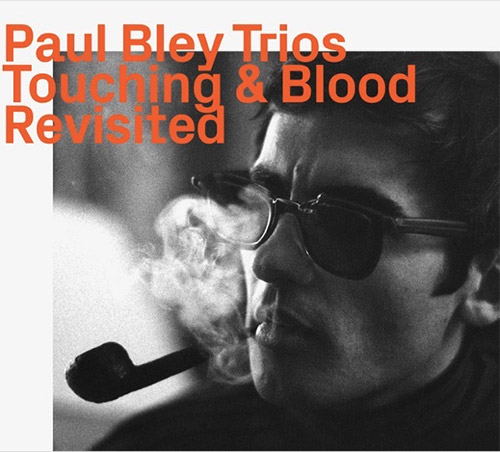
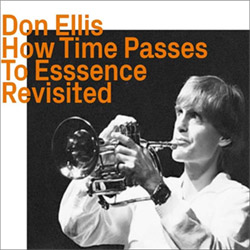
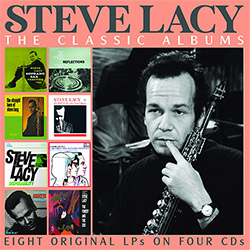

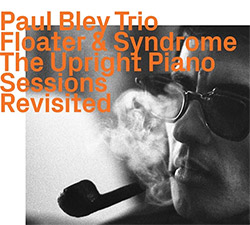
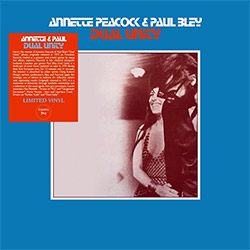


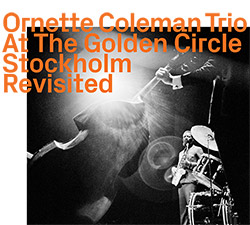
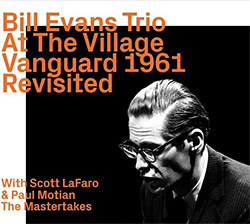


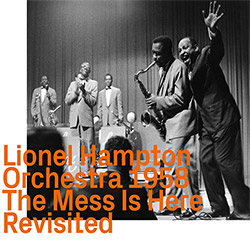
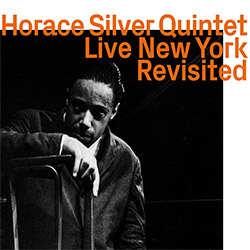
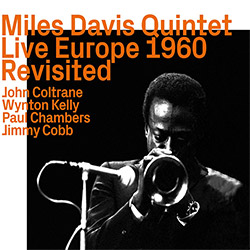

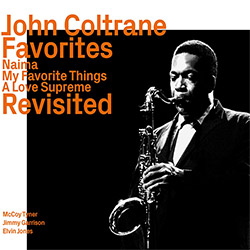

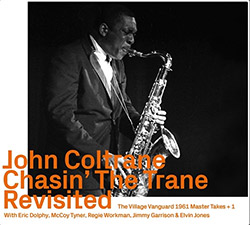

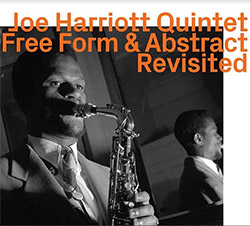

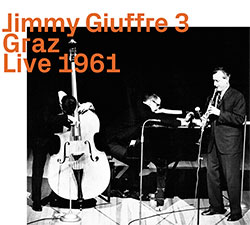

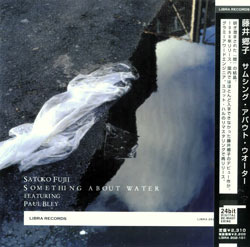
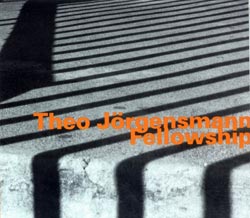
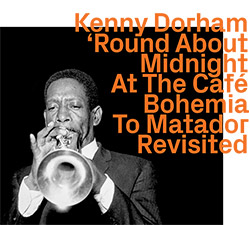










![Deupree, Jerome / Sylvie Courvoisier / Lester St. Louis / Joe Morris: Canyon [2 CDs]](https://www.teuthida.com/productImages/misc4/36404.jpg)


![Eternities: Rides Again [CASSETTE]](https://www.teuthida.com/productImages/misc4/36247.jpg)

![Lopez, Francisco: Untitled (2021-2022) [2 CDs]](https://www.teuthida.com/productImages/misc4/36438.jpg)




![Eventless Plot | Haarvol: The Subliminal Paths [CASSETTE + DOWNLOAD]](https://www.teuthida.com/productImages/misc4/36232.jpg)












![Eventless Plot | Francesco Covarino: Methexis [CASSETTE + DOWNLOAD]](https://www.teuthida.com/productImages/misc4/36231.jpg)



![Das B (Mazen Kerbaj / Mike Majkowski / Magda Mayas / Tony Buck): Love [VINYL]](https://www.teuthida.com/productImages/misc4/36329.jpg)



![Hemphill Stringtet, The: Plays the Music of Julius Hemphill [VINYL]](https://www.teuthida.com/productImages/misc4/36409.jpg)



![Halvorson, Mary Septet: Illusionary Sea [2 LPS]](https://www.teuthida.com/productImages/misc4/17952.jpg)






![Money : Money 2 [2 CDs]](https://www.teuthida.com/productImages/misc4/35894.jpg)




![Klinga, Erik: Elusive Shimmer [VINYL]](https://www.teuthida.com/productImages/misc4/36258.jpg)
![CHANGES TO blind (Phil Zampino): Volume 9 - I Wave on a Fine Vile Mist [CD + DOWNLOAD]](https://www.teuthida.com/productImages/misc4/36061.jpg)

![Wallmart / Rubbish: Asset Protection [split CD]](https://www.teuthida.com/productImages/misc4/35900.jpg)


![+Dog+: The Family Music Book Vol. 5 [2 CDs]](https://www.teuthida.com/productImages/misc4/35897.jpg)
![Kuvveti, Deli : Kuslar Soyledi [CASSETTE w/ DOWNLOAD]](https://www.teuthida.com/productImages/misc4/36107.jpg)

![Nakayama, Tetsuya: Edo Wan [CASSETTE w/ DOWNLOAD]](https://www.teuthida.com/productImages/misc4/36105.jpg)




![Yiyuan, Liang / Li Daiguo: Sonic Talismans [VINYL]](https://www.teuthida.com/productImages/misc4/35957.jpg)
![Brown, Dan / Dan Reynolds: Live At The Grange Hall [unauthorized][CASSETTE]](https://www.teuthida.com/productImages/misc4/36245.jpg)








![Palestine, Charlemagne / Seppe Gebruers: Beyondddddd The Notessssss [VINYL]](https://www.teuthida.com/productImages/misc4/36206.jpg)
![Palestine, Charlemagne / Seppe Gebruers: Beyondddddd The Notessssss [NEON GREEN VINYL]](https://www.teuthida.com/productImages/misc4/36207.jpg)

![Laubrock, Ingrid: Purposing The Air [2 CDs]](https://www.teuthida.com/productImages/misc4/35639.jpg)

![Yoko, Ono / The Great Learning Orchestra: Selected Recordings From Grapefruit [2 CDs]](https://www.teuthida.com/productImages/misc4/35841.jpg)









![Zorn, John / JACK Quartet: The Complete String Quartets [2 CDs]](https://www.teuthida.com/productImages/misc4/35609.jpg)

![Lonsdale, Eden: Dawnings [2 CDs]](https://www.teuthida.com/productImages/misc4/35480.jpg)



![Sorry For Laughing (G. Whitlow / M. Bates / Dave-Id / E. Ka-Spel): Rain Flowers [2 CDS]](https://www.teuthida.com/productImages/misc4/35985.jpg)

![Rolando, Tommaso / Andy Moor : Biscotti [CASSETTE w/ DOWNLOADS]](https://www.teuthida.com/productImages/misc4/36106.jpg)


![Electric Bird Noise / Derek Roddy: 8-10-22 [CD EP]](https://www.teuthida.com/productImages/misc4/35970.jpg)








![Elephant9 : Mythical River [VINYL]](https://www.teuthida.com/productImages/misc4/34624.jpg)



![Elephant9 with Terje Rypdal: Catching Fire [VINYL 2 LPs]](https://www.teuthida.com/productImages/misc4/35355.jpg)
![Deerlady (Obomsawin, Mali / Magdalena Abrego): Greatest Hits [VINYL]](https://www.teuthida.com/productImages/misc4/34876.jpg)







![Surplus 1980: Illusion of Consistency [CD]](https://www.teuthida.com/productImages/misc4/35069.jpg)
![Staiano, Moe: Away Towards the Light [VINYL + DOWNLOAD]](https://www.teuthida.com/productImages/misc4/35037.jpg)
![Coley, Byron: Dating Tips for Touring Bands [VINYL]](https://www.teuthida.com/productImages/misc4/17906.jpg)

![Lost Kisses: My Life is Sad & Funny [DVD]](https://www.teuthida.com/productImages/misc4/lostKissesDVD.jpg)